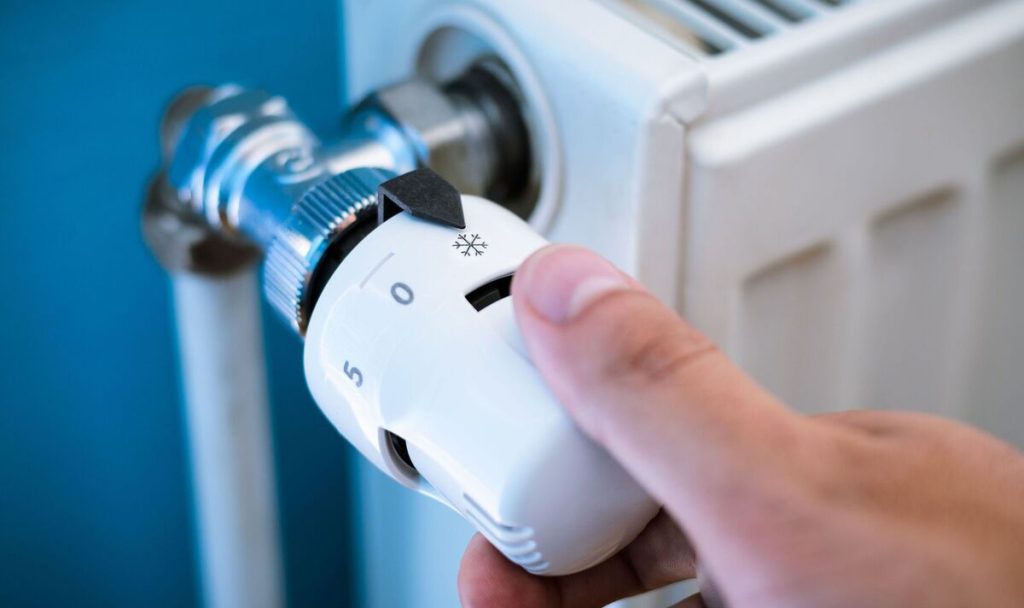
It’s a contentious topic in households across the country – is it cheaper to leave the heating on low all day, or only turn it on when you need it?
With expensive energy bills and a cost of living crisis across the country, Britons are searching for the most budget-friendly ways of staying warm in the coming months.
The Energy Saving Trust is an independent organisation that aims to empower millions of householders every year to make better energy choices.
Joanna O’Loan, Knowledge Manager at Energy Saving Trust, told Express.co.uk: “If you have gas central heating, it’s generally advisable and most cost effective to turn your boiler on and off when you need it.
“It’s cheaper to reheat your home than it is to keep it on low all day when you’re not there. If you have thermostatic radiator valves, turn these higher in the room you want to heat and low or off in the rooms you’re not using.”
However, there is an exception if you have a heat pump as they are “more efficient if you leave them running for longer at a lower output,” Joanna added.
So, to answer whether or not it is cheaper to leave the heating on low all day or turn it on when you need it: it depends.
Most of the time it is more cost-effective to turn your boiler on when you need to use it, and it’s cheaper to reheat your home than it is to keep it on whilst you’re not there, unless you have a heat pump – then it is more efficient to have them on a lower output for longer.
Energy Saving Trust has also suggested some low-cost ideas to make some quick savings on your energy bills “immediately”.
1. Draught-proof your house
If your home is experiencing draughts, it means they are letting warm air out and cold air in – so your heating system has to use more energy to keep your house warm. It is relatively inexpensive and easy to add draught proofing strips to your windows and doors. Just make sure not to block any intentional vents as they allow fresh air into your house.
Potential savings: £45 a year
Top tip: If you have an open chimney, fitting a chimney draught excluder could save you a further £65 a year.
2. Draw the curtains
When it’s cold, closing blinds and curtains will help limit the amount of heat your home loses – meaning you might not have to spend as much money on heating.
Top tip: Make sure blinds and curtains don’t block any heat from radiators from getting into the room. When they are closed, they should stop between the edge of the windowsill and above any radiators.
3. Turn down the thermostat
Turning down the thermostat by as little as one degree could save you around £100 a year. So if you’re feeling warm enough, consider turning the thermostat down – in fact, the World Health Organisation suggests that the lowest comfortable temperature for most people is between 18°C and 21°C.
Potential savings: £100 a year
4. Choose central heating over electric heaters
It will generally be cheaper to use gas central heating rather than an electric heater. If you just want to heat one room, turn the radiator valves to a higher number in this room and a lower number in the other rooms in your house.
Top tip: Keep doors between heated and unheated spaces closed, as this will prevent heat escaping from the places you want to stay warm.
5. Keep your water tank cosy
If you have an older water tank then it may have a small amount of insulation compared to most modern tanks. You can add extra insulation to a water tank via an inexpensive hot water tank insulation jacket. They are widely available and easy to fit and could save you around £45 a year on your energy bills.
Potential savings: £45 a year
Top tip: Insulating exposed hot water pipes is also an easy DIY job. Inexpensive pipe insulation is available from most DIY stores and fitting it could save you a further £6 a year.

 Latest Breaking News Online News Portal
Latest Breaking News Online News Portal




